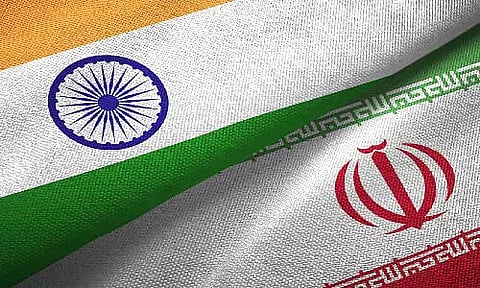
- Home
- Live Blog
- Breaking News
- Top Headlines
- Cities
- NE News
- Sentinel Media
- Sports
- Education
- Jobs

NEW DELHI: Indias point person on Iran, J.P. Singh has just concluded an important visit to Tehran, signalling that New Delhi is getting set to reboot ties with Iran, riding on the change of guard in Washington.
India is already picking signals that the Trump-era opposition to New Delhi's robust engagement with Iran, may recede, following the arrival of Joe Biden as the 46th President of the US.
During his visit to Tehran, Singh met with key officials in the Hassan Rouhani administration, including Rasoul Mousavi, assistant to Iran's Foreign Minister and Director-General for West Asia in the Foreign Ministry.
During this meeting, Singh reviewed the development of the Shahid Beheshti terminal at Chabahar Port. Besides, he called on Deputy Foreign Minister Abbas Araghchi, an ace diplomat who was also majorly involved in the negotiation for the Iran nuclear deal, to take stock of the regional and international situation.
Following Singh's visit, Iran's Defence Minister Amir Hatami arrived in India for talks and has already concluded talks with his counterpart, Rajnath Singh, IRNA reported.
The Chahbahar Port development is a key joint strategic project of India and Iran. It not only extends India's outreach to Afghanistan and Central Asia, but it can also serve as a counterweight to the Sino-Pak power projection in the Indian Ocean, via the nearby Gwadar Port, the starting point of the China Pakistan Economic Corridor (CPEC). By opening the Chabahar option, India and Iran wish to persuade Afghanistan and Central Asia not to over-rely on China-backed Pakistani ports.
New Delhi would have already smelled an opportunity in Iran-a pivotal state- by scouring names of key individuals who have been posted by the Americans in their dealings with Iran and the broader West Asian region.
Washington is already emitting signals that a radical shift from Trump's hostility towards Iran may not be far away.
Biden has sealed the appointment of Robert Malley, a specialist in conflict resolution and the lead negotiator on the 2015 Iran nuclear deal, as US Envoy to Iran. Wendy Sherman, appointed as the Deputy Secretary of State, has also been a key negotiator on Iran in the Obama years.
A possible rapprochement between the US and Iran is good news for India. Deeper Washington-Tehran ties can dilute the influence in Iran of China, India's arch-foe. Hemmed in by US-led sanctions in the Trump era, Iran had signed an estimated $400 billion deal with China, which included a 25-year oil purchasing contract. More importantly, China was eyeing the strategic Iranian port on Jack close to the Strait of Hormuz as part of the deal. Given Washington's animosity towards China, it is likely that the US would urge Iran to review the deal as a price for better ties with Washington. In turn that would mean Beijing's lighter footprint in the oil-rich Gulf.
Viscerally opposed to CPEC, it is in India's interest to work together with Iran in its Sistan-Balochistan province to keep an eye on the corridor, which passes through neighbouring Pakistan's Balochistan area. (IANS)